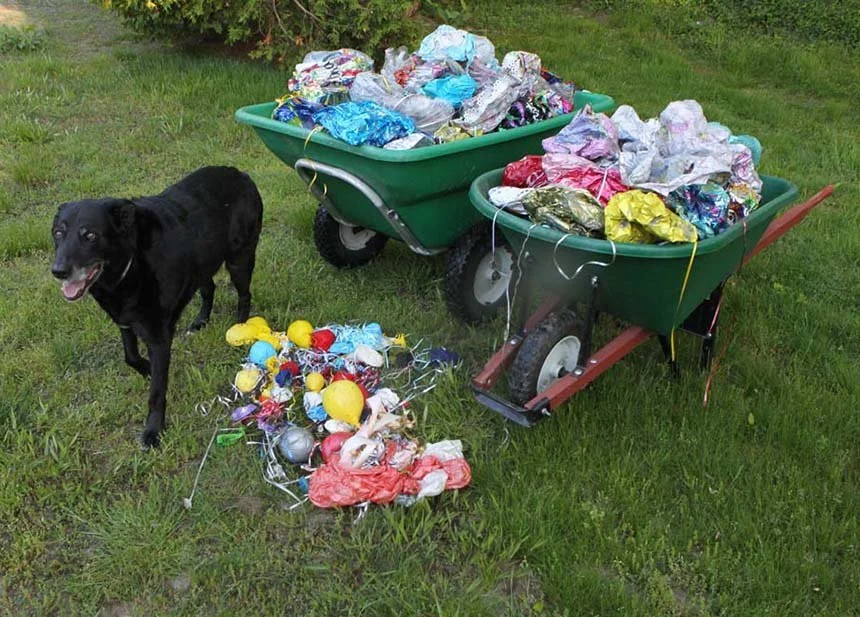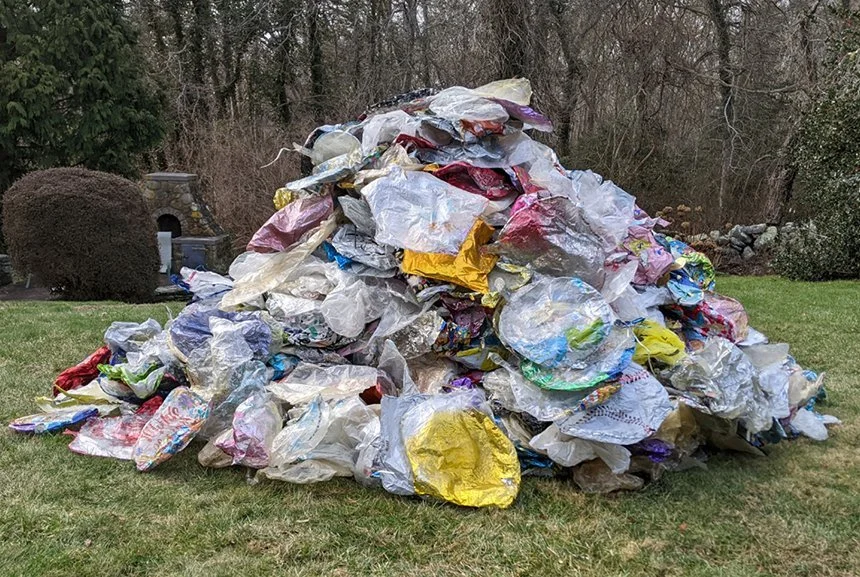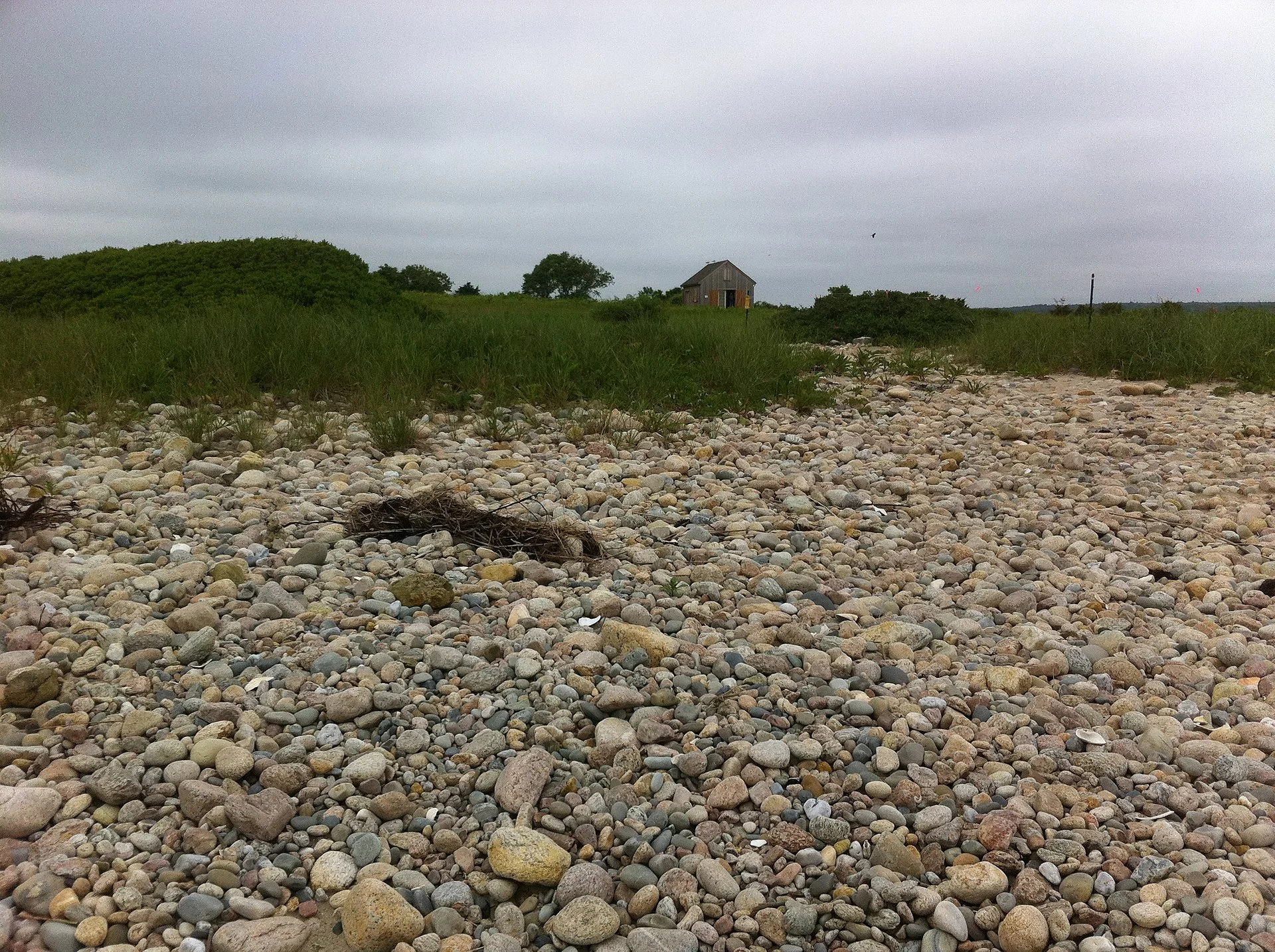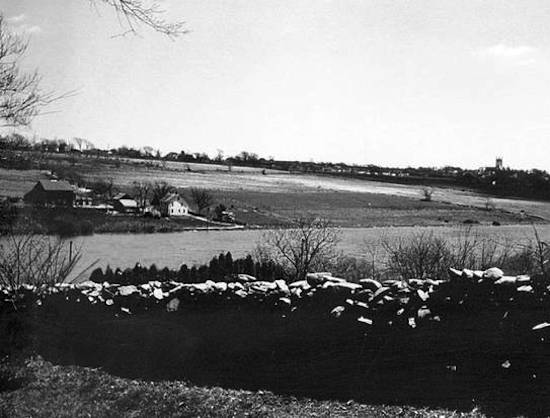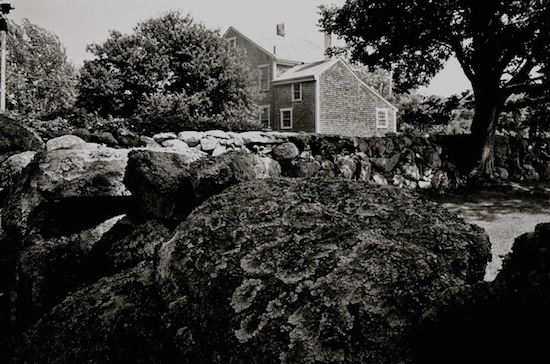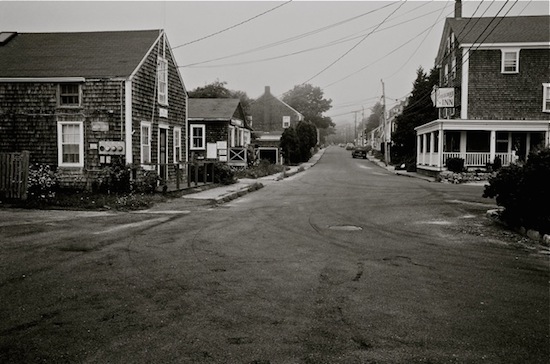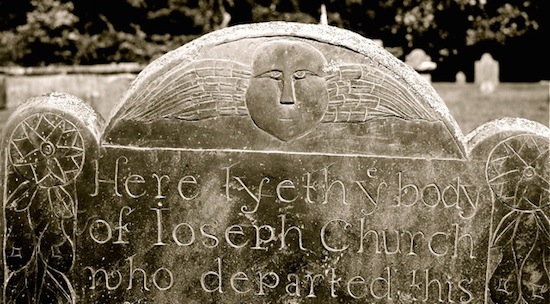-- Photo by JOHN PINNING
Green End Farm, in Middletown, circa 1960, where the author savored his Thanksgiving dinner.
We’re rolling merrily down my grandparents' lane in Middletown, R.I., which is next to Newport. A border of weeping willows just beyond the passenger windows drapes into Green End Pond before the lane curves away at the stone wall and up between two towering maples and past the rarely-used front door of the white farmhouse. We pull around back by the cast iron water pump with the long, curved handle and trundle in through the back door.
My grandmother is at the kitchen stove, a pot on every burner, opening the oven door to baste the turkey. The entire house is rich with the aroma of pies, vegetables and turkey.
Everything glistens. The mahogany table, the backs of the chairs. The window glass and the cut glasses and candlesticks on the table. The silverware. Heat comes up through the scrollwork of the floor registers. It is here, in the big dining room, behind lace curtains with the afternoon sun streaming in, that we celebrate Thanksgiving.
Aunts and uncles and cousins arrive from Newport, Bristol, Warren and Providence. I am shy around some of these people whom I only see a couple times a year. These are working people; Portuguese, Irish, fishermen and plumbers. They are jostling and physical, and my head is rubbed many times, and I am hugged and kissed by aunts with booming voices wearing too much lipstick and perfume. I am not a loud person. I don’t know how to smile unless I am genuinely happy. I am feeling pretty happy at the moment, just overwhelmed and crowded.
The grand feast is served forth, the plates are loaded and the eating begins, soon followed by the arguing. Something is said about the Kennedys and my father starts in about the Bay of Pigs, and then an uncle accuses a brother-in-law of “double-dipping,” and the battle cry is raised about taxes in Newport and taxes in Bristol and why am I being sent to a private school — aren’t public schools good enough for me?
My mother’s younger sister is in high spirits with her new boyfriend and my mother has to take her down a few notches, accusing her of having more growing up than she did, and nobody notices when I slide down out of my chair and crawl out of the room. In the back hall I grab my coat and slip outside.
The sky is a watercolor wash of blues, grays and pale whites as I head up to the barn. My grandfather is inside, arranging the milking machines, the big grey tabby following him. I hadn’t notice him leave the dining room before me. He is wearing a work coat over his suit and a red plaid hat with flaps up.
I walk past him to visit the bull with the ring in his nose, watching us from behind the thick iron bars of his stall.
I follow my grandfather back to the front of the barn, where he takes another plaid wool hat, a green one like the red one he wears, and fits it onto my head. Then we walk down the lane to the pond.
Two swans glide over to us and my grandfather takes a chunk of bread out of his pocket, breaks off a piece and tosses crumbled bits of it into the water. He hands the chunk of bread to me and I do the same.
A group of mallards stream in, darting at the bread furthest from the swans and the last of the sun starts streaking the sky orange and purple.
“Time to bring in the cows,” my grandfather says.
We turn and head up the lane, toward the farmhouse and the pasture beyond. My grandmother is standing in a window watching us and I smile and wave to her. She smiles and waves back.
“She can listen to that. I can’t,” says my grandfather.
“Why do they complain so much?” I ask him.
“Not enough money,” says my grandfather. “That’s why your parents want you go there,” and he points to the Gothic spires of the St. George’s School chapel, lordly stoic beyond the fields on the highest point of land in the area.
And one day, I did go to that prestigious boarding school. But it was already too late for me. I was of the complaining class, and no matter how far life took me, I would forever see everything that was wrong and complain about it.
Still, Thanksgiving remains my favorite holiday — even if for turkeys it is a complete disaster, and for the American Indian, a day of national mourning.
Charles Pinning is the author of the Rhode Island-based novel “Irreplaceable.”

